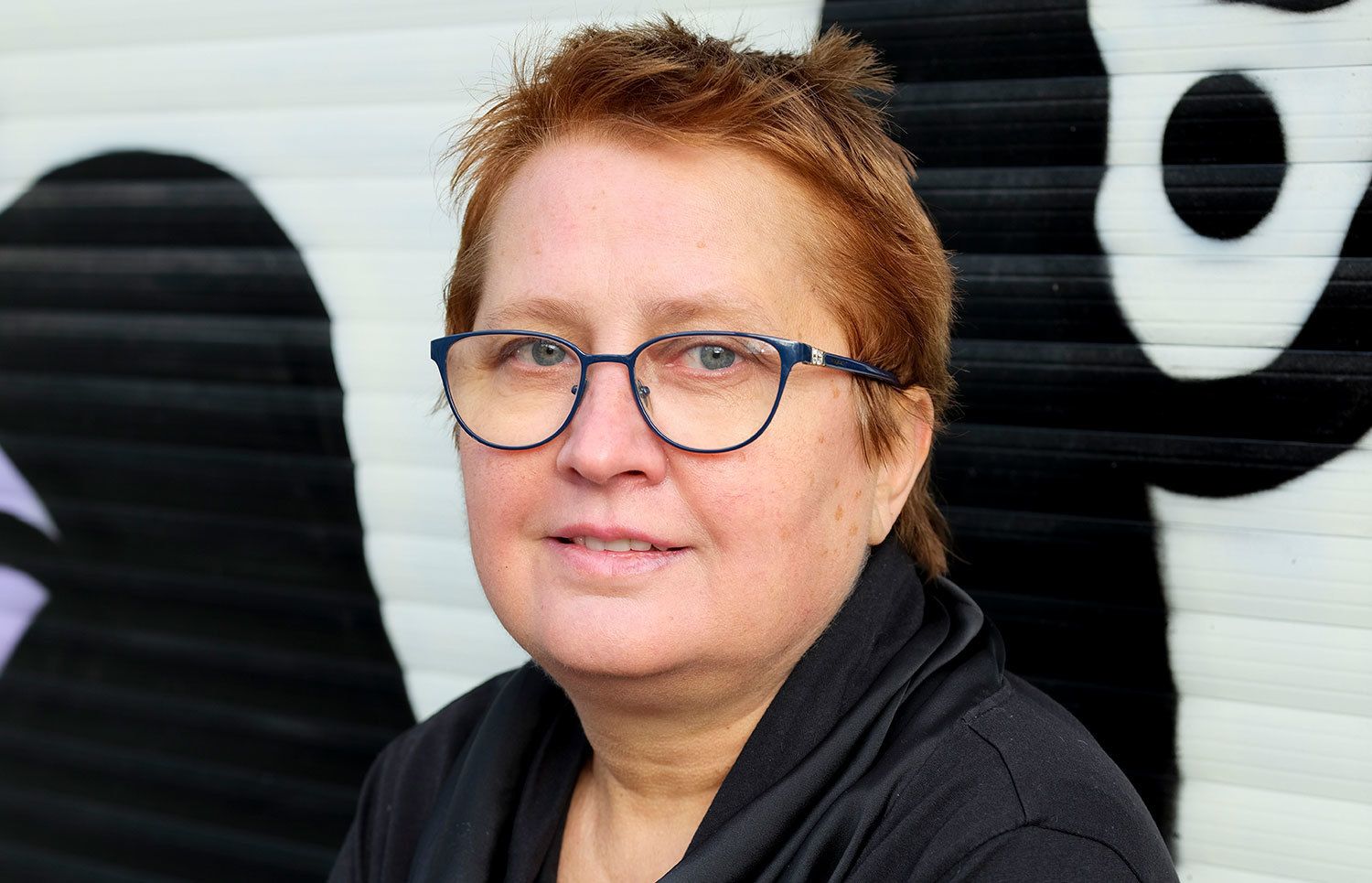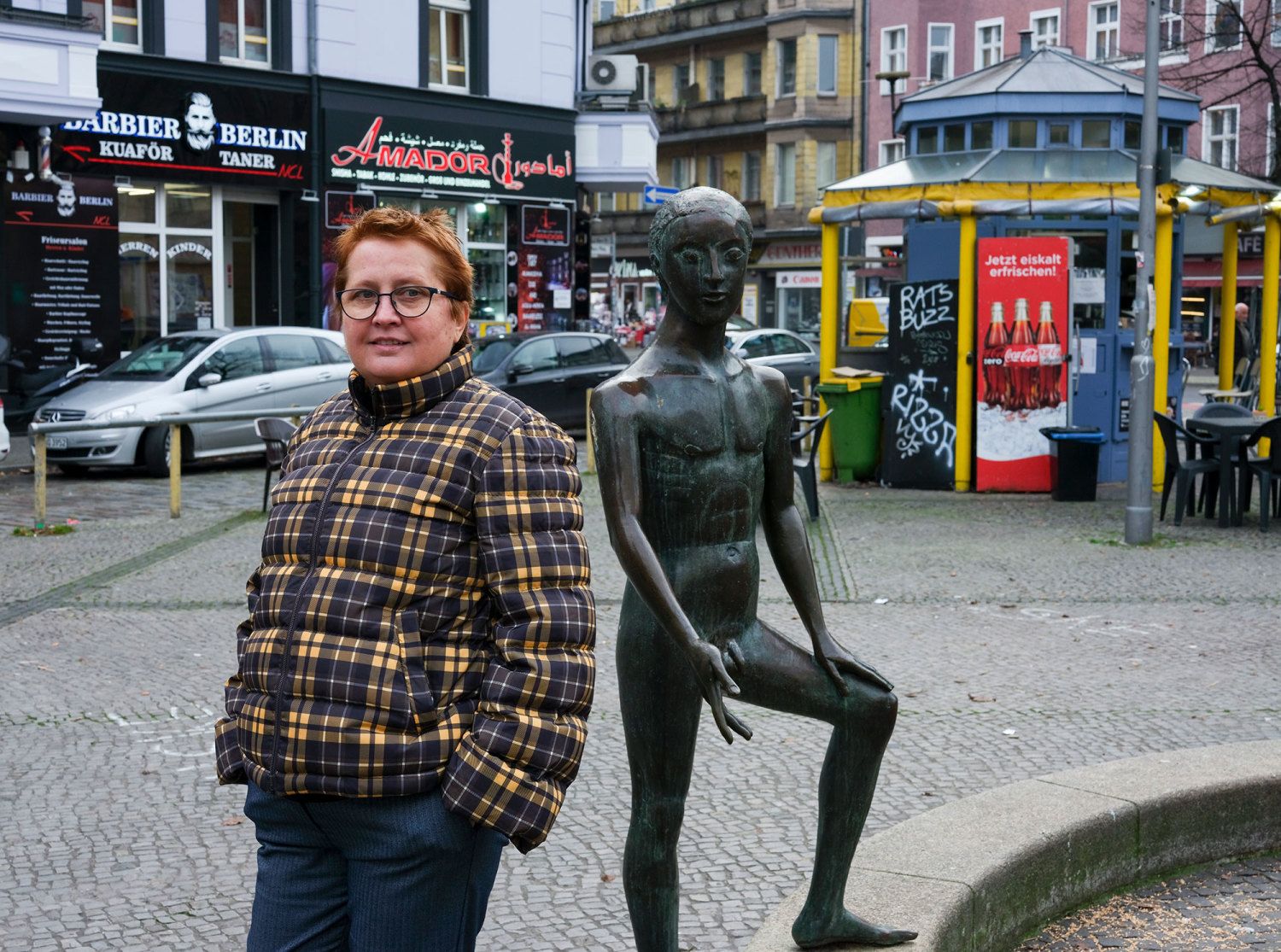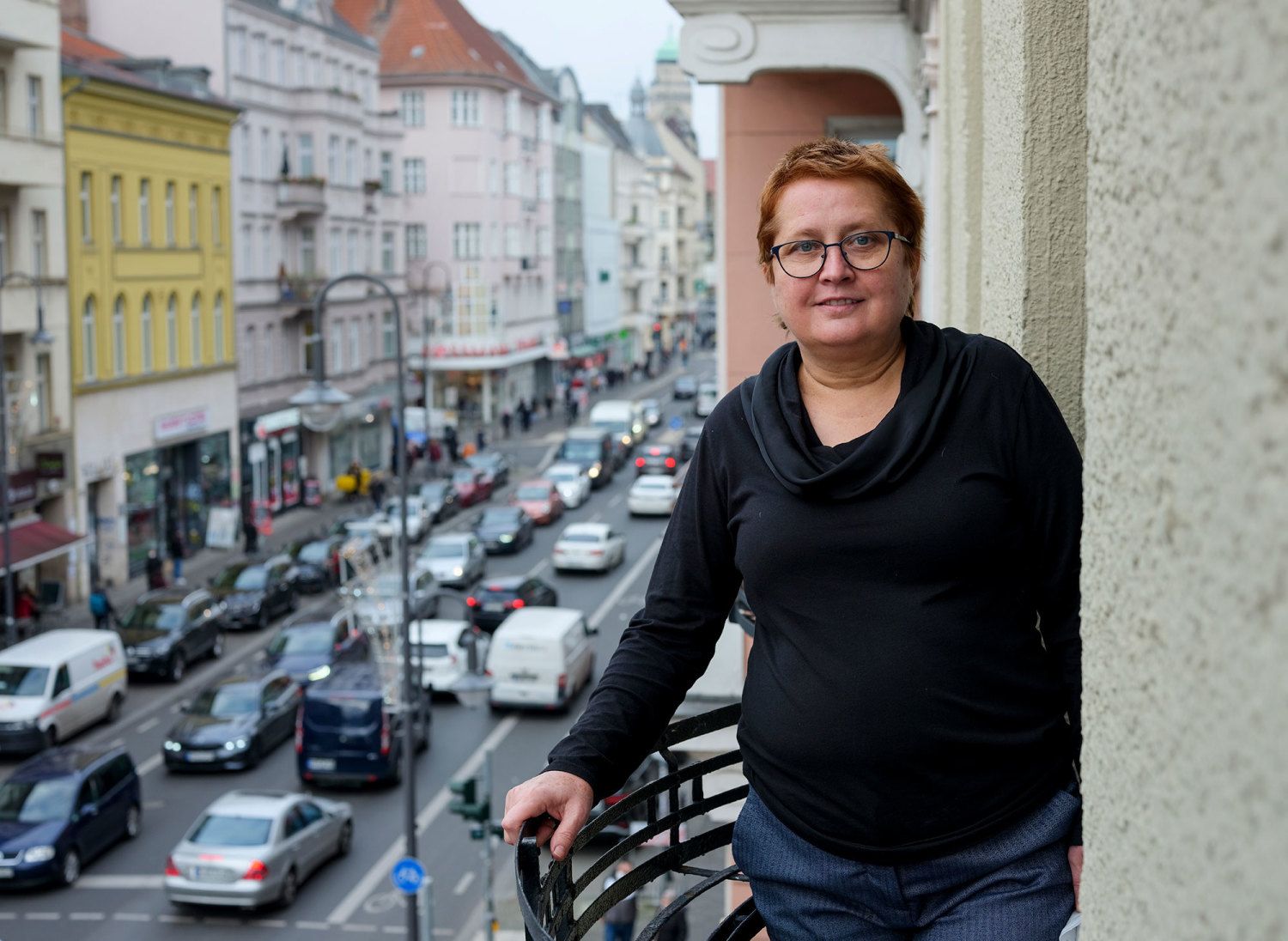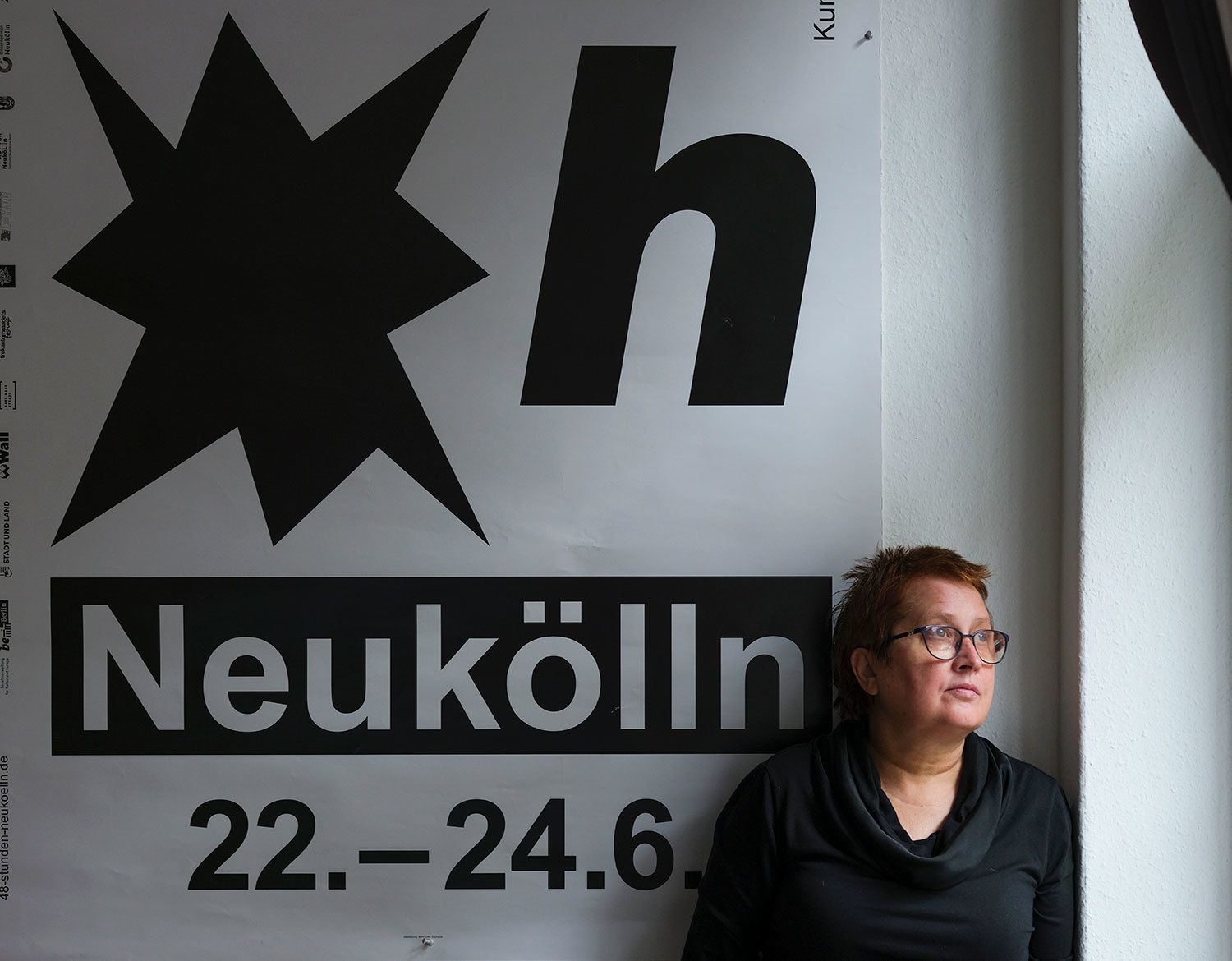Schlee has fond memories of her life as a young woman behind the iron curtain. “I had a great time in Romania. We went to a lot of parties when we were young,” she says. That all stopped in 1985, when Schlee’s family emigrated to Germany – five years before the Ceausescu regime collapsed.
The family’s first stop in Germany was in Singen, close to the Swiss border near Lake Constance. Here, Schlee had to find her feet and undergo a one-year special training to re-take her Abitur examination. While her mother still lives in Singen to this day, the provincial atmosphere was not for Schlee. “I moved away pretty quickly and wanted to study art,” she says. “But then I got cold feet and didn’t dare try my luck at the large academy of fine arts in Munich.”
Instead, Schlee began an apprenticeship as a potter, which she was forced to quit a year later, as the business went bankrupt. She changed direction and began an apprenticeship as a bookseller in Frankfurt am Main. “I’ve always read a lot, ever since I was little. I enjoyed being a bookseller, I’d still like to be one today, but unfortunately, real book stores are becoming a thing of the past. Most books are ordered online, and book stores only stock the latest bestsellers next to coffee, postcards, and magnets. It’s frustrating.”
After completing her apprenticeship, Schlee worked as a bookseller for a while, but she kept coming back to her art. Together with a friend who had wanted to study art like Schlee, she signed up for a summer art course in Trier, after which the two friends submitted their portfolios to the academy of fine arts in Frankfurt. Even though this spontaneous attempt failed, it re-kindled their enthusiasm; the friends decided to put in a bit more preparation and try again in Munich.
While Schlee was preparing for the application, she traveled to Canada for three months. She wanted to learn English and signed up for more art classes – and met her husband, John, a Canadian. “For him, Munich might as well have been on the moon. He had never intended to move to Germany.” But he was soon to embark on his journey to the moon, as Schlee actually received a positive response from Munich. She was accepted to the sculpture and ceramics course and took up her long-awaited art studies in the Bavarian capital.
At the time, Schlee was 29, and was pregnant soon after. Her husband, a computer specialist by trade, couldn’t find work in Germany. “In the mid-1990s, a lot of German companies relocated to low-wage countries,” says Schlee. “At some point, I started to think about studying in Canada.”
No sooner thought than done. Her husband found a job in Toronto and they moved after the birth of their son. Schlee quit her studies in Munich, taking them up again at the Ontario College of Art and Design (OCAD) in Toronto a year later. “I got there with my slim portfolio, told them I had studied in Munich for two years, and they let me enroll.” Even though the comparatively high tuition fees made a huge difference to studying in Germany, there were a lot of benefits. “In Munich, our professor was rarely around and the course of studies wasn’t really structured,” Schlee says. “In Toronto, on the other hand, we had to submit at least five certificates per semester.”




